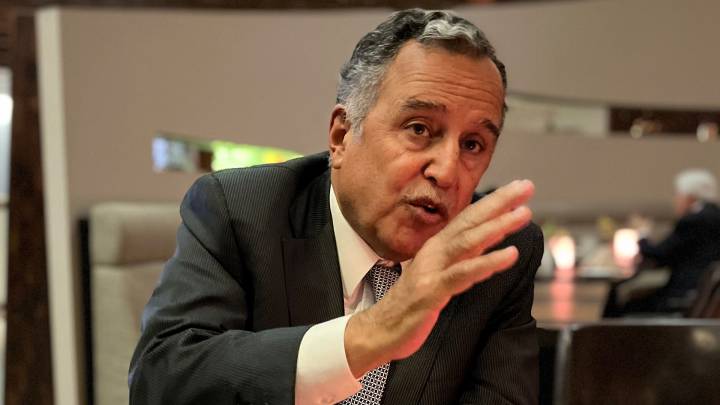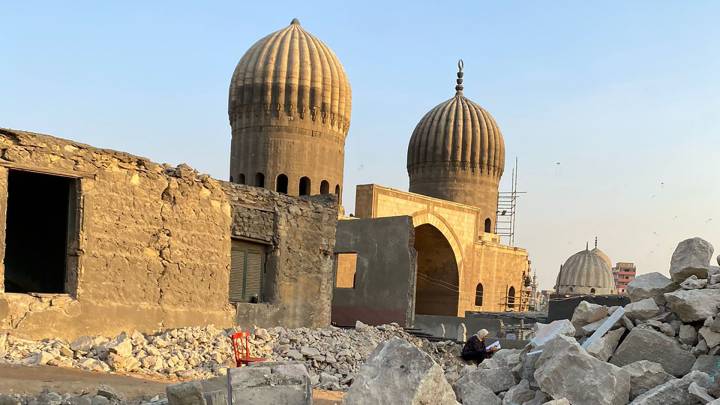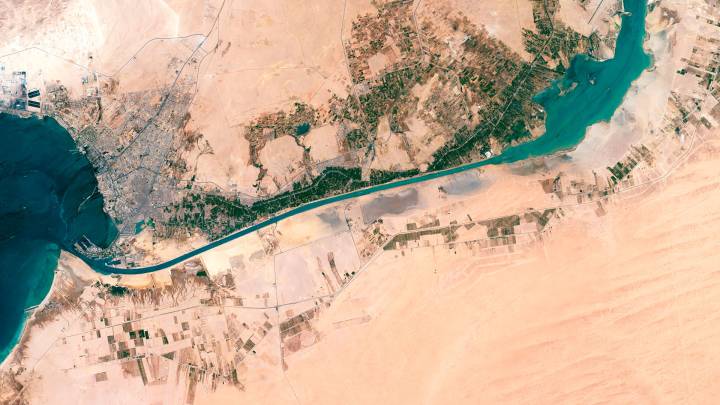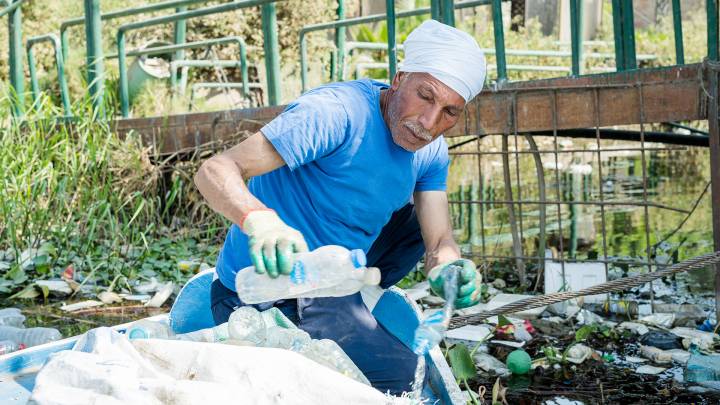Rooted in history, the war of words that has erupted in the Gulf between Qatar and its neighbours is an intensely personal affair for the Gulf ruling families, writes Geoffrey Martin.
On 5 June, the GCC region changed forever. Hyperbole? Certainly the economic boycott of Qatar announced by Saudi Arabia, the United Arab Emirates, Bahrain and Egypt signals a new and intensified phase of a long-running dispute. What had been a festering infection suddenly became a full-blown medical emergency; the GCC as an entity is on life support, and we can’t be sure if it will pull through or not.
What are the sources of this conflict? Despite the seeming suddenness of the flare-up, the roots of the crisis can be seen as far back in history as you choose. I’ll give you a few options.
You can focus on relationships.
You can go back to the founding moments of the nation states in the region, when there were no static borders along the Gulf coastline. Disagreements about borders between Qatar and Bahrain, Saudi Arabia and the UAE have plagued relations since, well, relations started. Bahrain and Qatar only resolved their land and maritime borders in 2001, Saudi and Qatar only agreed to a final demarcation after 2008, and the UAE and Doha still disagree over the Khor Al Udaid coastline, which was once part of Qatar but was given to Saudi Arabia in 1974 with Abu Dhabi’s support.
You can focus on the avant-garde nature of the Al Thani foreign policy since 1995.
There are rumours from political sources in Kuwait that Turkish troops are protecting key military sites and the palaces of the Al Thani elite, who fear a coup similar to the one in 1995.
Qatar’s pursuit of an autonomous foreign policy at odds with those of its GCC once-allies was designed in many ways to bring Qatar out of what some have called vassal state status under Saudi control. Qatar’s relationships with Israel, Iran and Islamist groups have led to boycotts and diplomatic disagreements since 1996, and the growth and tenacity of Al Jazeera’s controversial reporting style and its use as a platform for controversial figures such as Yusuf al-Qaradawi, considered an Islamic extremist by the boycotting countries, have further fanned the flames.
Relationships got a little better after 2008, and when the emir of Qatar, Hamad bin Khalifa Al Thani, handed over the throne to his young son Tamim Al Thani in June 2013, hopes were high that the new emir would inaugurate a new era in regional unity; it only took a couple of months for that idea to evaporate.
The debate over the Muslim Brotherhood as villain or protagonist is rooted in history and dates back to the 1950s. Saudi Arabia supported the Brotherhood as a proxy against Nasserist Egypt and the Baathist forces of Syria and Iraq (and sometimes Jordan). It was only after the 1991 Gulf War that Saudi support for the Brotherhood ebbed. The Brotherhood found new supporters in Qatar and Turkey, and the push and pull cycle between this Islamist group and nation states started again.
You can focus on the Arab Spring in 2011, with Qatar’s support for Islamist regimes and factions in Tunisia, Egypt, Syria, Libya and Palestine, and so on and so forth. This is the proximate cause of the current familial spat, with Saudi, the UAE and Bahrain suspending relations in 2014 over accusations that Qatar had not honoured a deal to stop interfering in the affairs of other GCC members, also a contentious point for Egypt.
You can focus on external actors, on their meddling, peddling ways.
The Washington establishment is far sicker than any of its allies at this juncture.
Turkey ranks a close second only to the United States these days, in terms of political sway in Qatar. Its influence in Doha and the region in general has been increasing for a long time, and with the advent of recent sanctions it has increased exponentially, mainly because of the newish Turkish military base in Qatar, which houses anywhere between 100 and 5,000 Turkish troops (no one is quite sure how many are actually there). There are rumours from political sources in Kuwait that Turkish troops are protecting key military sites and the palaces of the Al Thani elite, who fear a coup similar to the one in 1995.
Turkish foreign policy in the region has been almost as much of a disaster as Turkish domestic policy for the Erdogan government. Turkey’s rather rash support for the Morsi regime and Syrian Sunni rebels, the age-old Kurdish problems, as well as its continued policy confusion over its NATO contributions, EU membership claims and the current crackdown stemming from the July 15, 2016 coup, have made a volatile security environment even more convoluted. Turkey’s support for Doha during the crisis can be seen as the last attachment to a set of policies – supporting the delusion that Islamist populist movements would reset relations with neighbours and undo centuries of colonial oppression – that led to Qatar being the last chip on the table. Turkey is holding onto this chip to stay in the game.
US disorganisation, in more ways than one, probably led to this series of crises. The rivalry between Qatar and its erstwhile allies pits very important US allies against each other. Secretary of State Rex Tillerson – in my opinion the only adult in President Trump’s cabinet – has attempted to assist the Kuwaiti emir in reducing the tensions and opening up negotiations, which seems to have succeeded. Tillerson has had to deal with the ongoing chaos of a president who has a case of motor mouth, yet the lack of clarity in US foreign policy is largely due to the hundreds (if not thousands) of key State Department positions sitting empty since Trump’s inauguration. This increases the likelihood of foreign policy mistakes, a serious lack of coherence and the multiple intelligence leaks we are now seeing on a weekly basis regarding the Qatari crisis. The Washington establishment is far sicker than any of its allies at this juncture.
If these Machiavellian or institutional reasons don’t satisfy you, and you prefer something more structurally determined, you can look at how economics shapes political decision-making. One could make the argument that the feud between Qatar and its larger neighbours is rooted in natural gas. Liquid natural gas pricing does not fall under OPEC’s purview, allowing Qatar to sidestep the myriad challenges of competing and negotiating with its neighbours over oil pricing.
Adding another wrinkle, the main oil field, the offshore North Dome/South Pars Field, is shared with Iran. This has led Qatar to address issues with the Islamic Republic with dialogue and negotiation, as it has a vested economic interest far greater than that of its neighbours (though the UAE also has significant business ties with Iran).
Furthermore, there is jealousy among the other producers in the region. Not too long ago, natural gas was considered a waste product. Qatar’s success in making it very profitable has upset the very traditional and somewhat reactionary economic bargains made between the GCC states and their business elite. Displeasure at Qatar’s success has been demonstrated in Saudi policies that make Qatari investment in pipelines in the region difficult, blocking planned pipelines to Kuwait since 2006 and repeatedly protesting over the Dolphin pipeline that brings gas to the Emirates and Oman. Even now, this pipeline is still supplying the Emirates through the blockade.
The real issue, I think, relates to something more recent than border disputes or economic brinksmanship; something less recent than the Arab Spring, and much more personal. You should probably point your finger at the bloodless coup that saw Shaikh Hamad Bin Khalifa Al Thani depose his father in 1995.
Tensions grew worse between Qatar and the Saudis, the UAE and Bahrain after Shaikh Hamad deposed his father, Hamad bin Jassim Al Thani, in 1995. Hamad bin Jassim was considered a traditional and conservative ruler by his neighbours, and was well liked by the other GCC rulers. Much of the anger between Qatar and its neighbours originates in this coup, the starting point of a series of events (mainly Qatar’s new foreign and economic policy) that led to the current crisis.
Attempts to reinstall the current emir’s grandfather in 1996 and 2005 are rumoured to have been supported by the Saudis, Emiratis and Bahrainis, who viewed the coup as running against the values of the royal families in the region. Tensions were not reduced by the fact that the overthrown Sheikh went on a tour of the GCC states – where he was openly hosted – Egypt and Syria, proclaiming publicly that he was attempting to retake power.
These historical and recent positions are rooted in history but more often than not also in personal distrust between leaders. The personal nature of the quarrel is evident in each side’s stance. The position of the Qatar blockade faction is very abstract; no one really knows what Qatar would have to do to “combat extremism” in a tangible sense that could prove its commitment without endangering its own sovereignty, any more than the Saudis or Emiratis could. The official demands seem pretty disorganised and poorly thought-out, and it is not clear that any country wishing to uphold its sovereignty would assent to the demands in a realistic manner.
On Qatar’s part, it has become obsessed with its own self-image, as it is very much punching above its weight. This is what led it into this mess, and its leadership has not really thought long and hard about the repercussions of this strategy of going it alone.
Egypt plays an interesting side role, and in fact is crucial to the crisis, as much of the recent disagreement is over Qatar’s support for Morsi. Unlike the other blockaders, it did not recall its citizens, approximately 200,000 of whom live in Qatar. If they had gone home (it is not clear that they would have listened to their government in any event), it likely would have crippled Qatar, as Egyptian expatriates in all Gulf states provide important positions in the government bureaucracy and private companies. Perhaps this makes it unsurprising that none of the four sanctioning states escalated to boycott or remove companies from doing business in Qatar.
This is indeed a family spat, which means it will likely be resolved in due time – as many family disagreements are.
Geoffrey Martin is a PhD student in Political Science at the University of Toronto in Canada. He has written and published on a wide variety of topics concerning Middle Eastern and Gulf politics.




